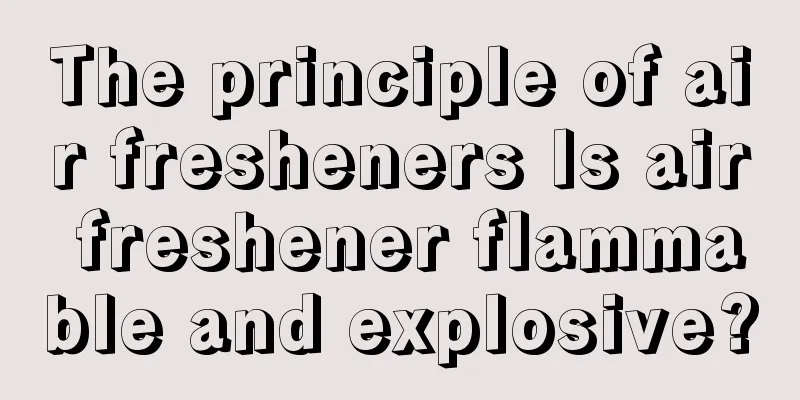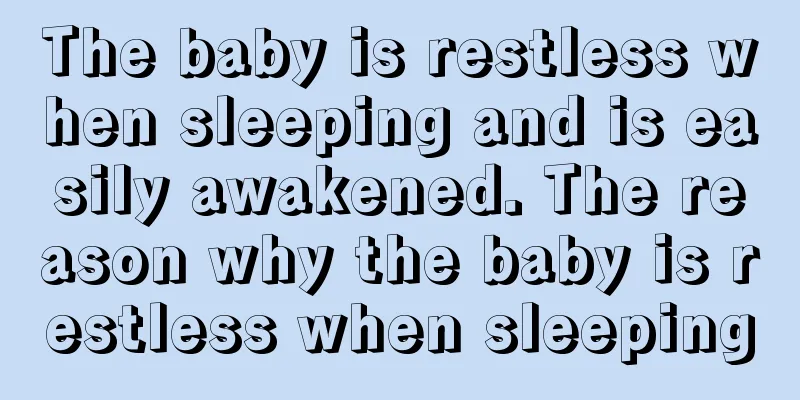The principle of air fresheners Is air freshener flammable and explosive?

|
We all know that air fresheners are products used to freshen the air. Many people have used this product, but they are not very clear about its principle. So let's understand the principle of air fresheners. Are air fresheners flammable and explosive items? How air fresheners workStudies have found that formaldehyde is soluble in water. Once the water evaporates, the formaldehyde is gradually released into the air. Therefore, the removal of formaldehyde by water is only temporary. However, after some air fresheners are sprayed indoors, the downward trend of indoor formaldehyde concentration is more obvious and lasting than water. The purification effect of air fresheners on other inorganic air pollutants (ammonia, sulfur dioxide, hydrogen sulfide) is similar to that of formaldehyde, but it has almost no purification effect on most organic pollutants (benzene, xylene). In addition to propellants and compressed gases, the air fresheners in closed cans of deodorants generally contain substances that react chemically with sulfur compounds, ammonia, amines, and formaldehyde, such as ferrous sulfate. Are air fresheners flammable and explosive?Air fresheners are flammable and explosive items. Air fresheners are composed of ethanol, essences, deionized water and other ingredients. They are a kind of aerosol or spray that emits fragrance to cover up odors and reduce people's uncomfortable feeling about odors. Air fresheners have various fragrances, such as single flower fragrances (jasmine, rose, osmanthus, lily of the valley, gardenia, lily, etc.), compound fragrances, etc., but they are basically composed of ether, essences and other ingredients. Air fresheners can also be called "environmental perfumes". In recent years, various air fresheners have rapidly become popular. Air fresheners are usually divided into three types: solid, liquid and gas. However, in the summer and autumn seasons when the sunlight is strong and ozone is easily generated, try not to use air fresheners unless necessary to prevent harm. Are solid or liquid air fresheners better?It is generally recommended that solid air fresheners are better. The main ingredients of solid air fresheners are flavors, alginate, surfactants, water, pigments, etc. They are developed using slow-release technology, have a pure fragrance, and contain relatively few chemical substances. Air fresheners are composed of ethanol, flavors, deionized water and other ingredients. They are a kind of aerosol or spray that emits fragrance to cover up odors and reduce people's uncomfortable feeling about odors. Car air fresheners, also known as "environmental perfumes", are currently the most common way to purify the air environment in the car and improve air quality. Due to their convenience, simplicity and low price, air fresheners have become the first choice for many drivers to purify the air in the car. Its working principle is also very simple, that is, adding a small amount of medicine to the odorous substance, achieving the purpose of deodorization through chemical reactions and using strong aromatic substances to conceal the odor. Therefore, many air fresheners do not actually remove the odor in the car, but only cover up the odor with a pleasing fragrance. Does air freshener need ventilation?Yes. When spraying or lighting air fresheners, family members are advised to temporarily evacuate the scene and wait until most of the aerosols or particulate matter settles before entering. It is best to open doors and windows for ventilation before entering. It should be used with caution when there are infants, asthma patients, people with allergies and people with allergic diseases in the room. Gas air fresheners should be used to deodorize toilets and bathrooms. Do not rely too much on air fresheners. The cause of the odor should be found out fundamentally and thoroughly removed to make the air in the room truly fresh. Experts also pointed out that the use of chemical substances such as 84 disinfectant and air fresheners for disinfection at home should be avoided as much as possible. If there are no patients with respiratory infections in the room, it is generally not necessary to disinfect the air frequently. |
<<: Are air fresheners harmful to babies? Can air fresheners purify the air?
Recommend
What should I pay attention to during the confinement period in October?
Postpartum women are weak, and confinement is to ...
When is it best to shave the baby's hair if the baby is over three months old?
Many people say that it is time to shave the baby...
Will Liby laundry detergent beads not dissolve? How many Liby laundry detergent beads should be put in at one time?
I heard that using laundry beads to wash clothes ...
Why does the stool smell bad if the baby is breastfed? Protein indigestion
Sometimes babies who drink only breast milk will ...
Can you rock a newborn baby? The correct way to hold a newborn baby
How to hold a newborn baby is the most basic thin...
What is the difference between baby spitting up and vomiting? How to tell whether the baby is spitting up or vomiting?
What is the difference between baby spitting up a...
What should I do if my child doesn't eat well? How should I treat my child if he doesn't eat well?
Children's feeding is a problem that worries ...
Can dandelion remove fetal toxins? What can I eat to remove fetal toxins?
Dandelion is a plant that many people like to pla...
How to do oral care for babies? What are the key points of oral care for newborns?
Oral care for babies is an issue that mothers nee...
Does painless childbirth hurt? Does painless childbirth have any effect on the baby?
The popularity of painless childbirth in my count...
What does painless childbirth mean? Is painless childbirth better than normal childbirth?
Many people cannot stand the pain during childbir...
Can Blue Moon laundry detergent be used to wash down jackets? Does Blue Moon laundry detergent wash well?
Although down jackets are difficult to wash, they...
What should I do if my baby's fontanelle closes too early? What are the dangers of premature closure of my baby's fontanelle?
There are certain disadvantages if the baby's...
What is the best way to arrange your children's summer vacation? How can you spend your summer vacation meaningfully?
How to arrange the summer vacation for children? ...
How long can a pacifier be used before it is removed at 3 years old
Pacifiers should be stopped before the age of 3, ...









